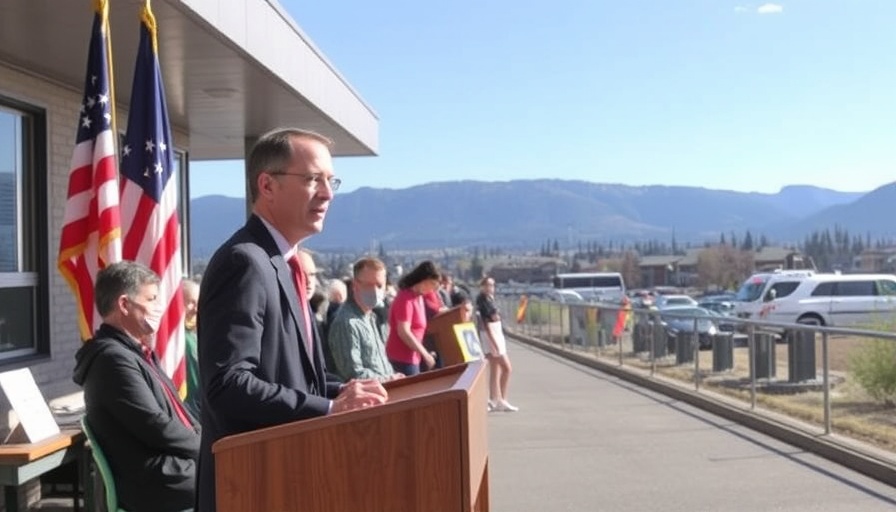
The Controversy Over Educational Content in Kelowna
The ongoing debate surrounding the educational content in Kelowna, led by MLA Tara Armstrong, has stirred significant conversations within the community and beyond. Recently, Armstrong responded to a statement by the Central Okanagan Public Schools (SD23) following backlash over her remarks concerning Indigenous sovereignty and educational ideologies. Her statement has drawn attention not only to the political landscape but also to the critical relevance of educational content in shaping young minds.
What Sparked the Debate?
Tara Armstrong, representing Kelowna-Lake Country-Coldstream, has been under scrutiny for her views on Indigenous issues. The local school board unequivocally expressed their support for the rights of Indigenous Peoples, aligning with the Truth and Reconciliation Commission and the United Nations Declaration on the Rights of Indigenous Peoples. Armstrong countered that the school board is prioritizing propaganda instead of an unbiased academic environment. This clash highlights a broader tension within educational institutions regarding how history and contemporary issues are taught to students.
The Role of Education in Social Responsibility
The SD23 school board emphasized the importance of teaching students about the histories and rights of Indigenous Peoples, which many argue is essential for fostering a sense of social responsibility and ethical understanding among future generations. Armstrong's call to shield children from ideological teachings and promote traditional subjects like math and science raises questions about the role of education in developing well-rounded, socially conscious individuals.
A Deeper Look at Historical Narratives
The controversy extends into deeper historical narratives surrounding residential schools in Canada. The tragic discovery of unmarked graves of Indigenous children, particularly highlighted by the Tk’emlúps te Secwepemc First Nation, has been a pivotal moment in the national conversation about reconciliation. Despite Armstrong’s dismissal of the mass grave findings, many community members uphold the importance of addressing this painful history as part of guiding students’ understanding of social justice.
Community Response and Parents' Role
In her response, Armstrong invited parents who share her values to participate in upcoming school board elections. This call to action emphasizes the importance of parental involvement in educational governance. It reflects a significant opportunity for community members to influence how education is delivered—highlighting varying perspectives on the integration of Indigenous history and social issues in the curriculum.
Addressing Misconceptions and Fostering Open Dialogue
One of the prevailing concerns among parents and community members is ensuring accurate information is conveyed to children. Addressing common misconceptions about historical events is critical for fostering informed discussions within families. Open dialogues on these subjects can bridge gaps in understanding and help shape a more inclusive narrative that honors diverse backgrounds.
Moving Forward: What Lies Ahead?
The discussions ignited by Armstrong and the school board will likely continue influencing educational policies in the Okanagan Valley and beyond. As society navigates the complexities of history, balancing respect for historical truths with optimism for future generations becomes paramount. Engaging in community forums and discussions, local citizens can contribute to shaping a more equitable and well-informed educational system.
Encouraging Community Engagement
As the 2026 school board elections approach, it’s essential for residents of Kelowna and surrounding areas to voice their opinions. Understanding the broader implications of educational content and expressing your views at community meetings or through social media can help foster a sense of collective responsibility for the education of future generations. Come together to ensure that all voices, especially those of Indigenous peoples, are represented in the narrative we pass on to children.
If you have strong feelings about how our local schools should address historical narratives and contemporary issues, consider attending school board meetings or reaching out to local representatives. Your voice matters in shaping the future of education in our community.
 Add Row
Add Row  Add
Add 




Write A Comment